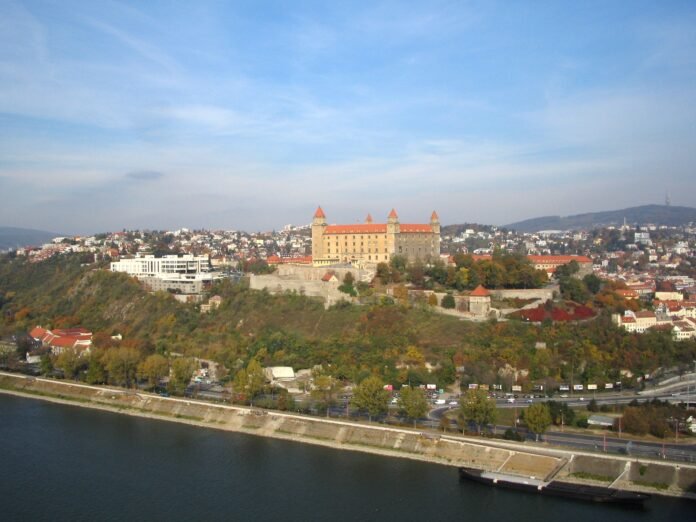Serbia’s healthcare system offers both public and private health insurance options, each serving distinct roles in access to medical services. While public health insurance is the foundation of the country’s healthcare system, private insurance is growing in popularity for those seeking faster service and added comfort. Understanding the key similarities and differences between these systems is essential for residents, expats, and medical tourists alike.
Public Health Insurance: Universal and Mandatory
Serbia’s public health insurance is managed by the National Health Insurance Fund (HIF), which provides mandatory coverage for all citizens and permanent residents. Contributions are income-based and paid by employees, employers, and the self-employed. This system ensures access to a wide range of services, including primary and specialist care, hospitalization, surgeries, prescription medications, maternity services, preventive care, and work-related injury treatments. Dependents, such as children and spouses, are also covered under a primary contributor’s plan.
Public facilities include a vast network of public clinics and specialized centers, such as the University Clinical Centre of Serbia and the Clinical Center of Vojvodina. Although comprehensive, the public system can experience long wait times, limited resources, and outdated infrastructure in some areas.
Private Health Insurance: Voluntary and Customizable
Private health insurance in Serbia is voluntary and typically used to supplement or replace public coverage. Providers such as Dunav Osiguranje, Generali, and DDOR Novi Sad offer plans tailored for individuals, families, and corporate clients. These policies often include broader access to outpatient and inpatient care, preventive screenings, dental services, maternity care, and faster diagnostic testing.
Private insurers usually partner with modern private healthcare facilities like Bel Medic, Euromedik, and MediGroup. These institutions are known for shorter wait times, more personalized service, and modern infrastructure. International insurers such as Allianz, AXA, and Cigna are especially popular among expatriates due to global coverage options and high service standards.
Similarities
Both public and private health insurance aim to enhance access to medical care and reduce out-of-pocket costs. Preventive services and coverage for major health concerns are common to both, and some overlap exists—particularly when private insurance is used to access services that are also available under the public system, but without delays.
Key Differences
The primary differences lie in funding, access, and experience. Public insurance is mandatory, state-managed, and income-based, offering broad but sometimes slower access. Private insurance is optional, typically faster, and paid directly by the policyholder. While public healthcare ensures equity and universal access, private healthcare emphasizes convenience, comfort, and customization.
Top Public Health Insurances in Serbia: Coverage, Access, and Features
Serbia operates under a centralized public healthcare system, primarily financed through a mandatory national health insurance scheme. The public health insurance is administered by the Republic Health Insurance Fund (RFZO – Republički fond za zdravstveno osiguranje), which is the sole national provider of public health insurance in Serbia. Unlike some countries that have multiple public health insurance providers, Serbia maintains a single-payer system. Below is a detailed analysis of RFZO and its core features.
1. Republic Health Insurance Fund (RFZO)(Official website: https://www.rfzo.rs)
Cost:
Health insurance through RFZO is mandatory for all employed citizens and is automatically deducted from salaries at a rate of 10.3% of gross income (of which 5.15% is paid by the employee and 5.15% by the employer). Self-employed individuals, pensioners, unemployed citizens, students, and vulnerable populations also have access through adjusted contributions, subsidies, or exemptions. For uninsured individuals, voluntary registration is available with a monthly flat-rate premium, typically between €30–€60, depending on income status.
Available Services/Coverage Features:
RFZO covers a wide spectrum of services, including:
- Primary and specialist outpatient care
- Emergency services
- In-patient hospital care
- Maternity and child care services
- Prescription medications (from a positive list)
- Mental health care
- Rehabilitation services
- Basic dental care
- Limited medical devices (e.g., wheelchairs, prosthetics)
Additionally, RFZO supports public health initiatives like vaccinations, screenings, and chronic disease management programs.
Open for All or Limited:
RFZO is open to all legal residents of Serbia, including Serbian citizens and foreign nationals with temporary or permanent residency. Coverage is universal and non-discriminatory, with special programs available for vulnerable groups such as children, people with disabilities, low-income families, and refugees. EU citizens working in Serbia can also be insured under bilateral agreements.
Core Financial Features:
The fund operates on a solidarity principle, meaning contributions are pooled and redistributed based on need rather than individual usage. Co-payments exist for some services (e.g., specialist exams, hospital stays, branded medications), but they are typically low (ranging from €1–€5 per service). Exemptions apply to children under 15, pregnant women, war veterans, and chronic patients.
RFZO also has mechanisms for cost containment, including a reimbursement system for cross-border care, partnerships with healthcare providers, and strict budget control of pharmaceutical expenditures.
Consumer Satisfaction Score:
While public trust in the RFZO has been gradually improving, challenges such as waiting times, underfunding, and administrative inefficiencies persist. Based on surveys conducted by Serbian health institutes and international observers like the WHO and European Health Consumer Index, the average consumer satisfaction score hovers around 65–70 out of 100. Users generally appreciate the affordability and accessibility, but report frustrations with long waits for certain diagnostics or surgeries and inconsistent service quality across regions.
Top Private Health Insurance Providers in Serbia: Features, Costs, and Consumer Experience
While Serbia’s public healthcare system is the mainstay for most citizens, private health insurance has gained popularity among individuals seeking faster access, premium services, and comprehensive medical care in private facilities. Although the market is relatively small, several private insurers operate effectively, offering policies tailored for individuals, families, and companies. Here are the top private health insurance providers in Serbia, evaluated by cost, coverage, accessibility, financial model, and customer satisfaction.
1. Dunav Osiguranje (Dunav Insurance)(Official website: https://www.dunav.com)
Cost:
Annual premiums typically range between €300–€900 per person, depending on age, health condition, and selected coverage.
Available Services/Coverage Features:
- General and specialist medical examinations
- Diagnostics (MRI, CT, blood tests)
- Hospitalization in private clinics
- Day surgeries
- Emergency care
- Some dental services
- Rehabilitation and physiotherapy
Open for All or Limited:
Open to individuals, families, and companies. Foreign nationals with residence in Serbia are also eligible.
Core Financial Features:
Co-payments are minimal or zero, depending on plan. Policies usually include direct billing with partner clinics, eliminating out-of-pocket expenses.
Consumer Satisfaction Score:
Around 80/100 – praised for good clinic networks, efficient claim processing, and reliability.
2. Generali Osiguranje Srbija(Official website: https://www.ddor.rs)
Cost:
Premiums start at approximately €250 per year, with upper-tier plans exceeding €1,000, especially for corporate packages or older clients.
Available Services/Coverage Features:
- Preventive check-ups
- Specialist consultations
- Diagnostic imaging and lab work
- Hospitalization in private hospitals
- Maternity and pediatric care
- Wellness and annual physicals
Open for All or Limited:
Open to all Serbian citizens and legal residents, including expats.
Core Financial Features:
Plans include cashless access to a wide network of private clinics and direct insurer-provider agreements. Some plans offer reimbursement options.
Consumer Satisfaction Score:
Rated 85/100 – users report high satisfaction with coverage breadth and convenience of private clinic access.
3. Triglav Osiguranje(Official website: https://www.generali.rs)
Cost:
Premiums range from €200 to €700 annually, depending on the chosen package and age of the insured.
Available Services/Coverage Features:
- GP and specialist services
- Emergency care
- Diagnostic services
- Physiotherapy
- Minor surgical procedures
- Optional dental and vision packages
Open for All or Limited:
Available to citizens, residents, and foreign workers with legal status.
Core Financial Features:
Offers flexible plans with tiered coverage. Policyholders can access services via a broad network without upfront payments.
Consumer Satisfaction Score:
Approx. 78/100 – clients highlight personalized service and straightforward claim procedures but note limited coverage in smaller towns.
4. Wiener Städtische Osiguranje(Official website: https://www.wiener.co.rs)
Cost:
Annual premiums typically range from €250 to €800, with corporate group rates available at discounted prices.
Available Services/Coverage Features:
- Specialist and GP visits
- Emergency services
- Diagnostics
- In-patient and out-patient treatments
- Pediatric care
- Vaccinations and wellness checks
Open for All or Limited:
Open to individuals, families, and companies. Coverage can be tailored to expats and foreign workers.
Core Financial Features:
Known for direct payment partnerships with private hospitals and digital claims processing for reimbursements when needed.
Consumer Satisfaction Score:
Around 82/100 – appreciated for digital tools, claim speed, and clinic choice. Some report limited dental and maternity options in basic plans.
5. Uniqa Osiguranje(Official website: https://www.uniqa.rs)
Cost:
Premiums range from €250–€850 per year, based on age, health status, and plan level.
Available Services/Coverage Features:
- Preventive healthcare
- GP and specialist consultations
- Laboratory and imaging diagnostics
- Out-patient and hospital care
- Dental options in premium packages
Open for All or Limited:
Open to Serbian residents and expats with local residency.
Core Financial Features:
Provides 24/7 assistance, pre-approval for procedures, and cashless service at partner facilities. Reimbursement available for out-of-network services.
Consumer Satisfaction Score:
Rated 80/100 – positive reviews for customer care, comprehensive plans, and wellness incentives.
READ MORE: Private and public health insurance of North Macedonia (Make informed choices)


